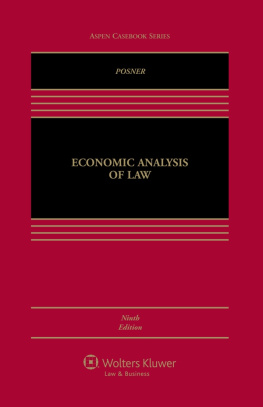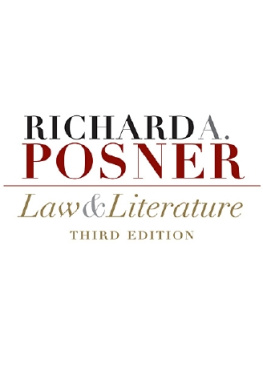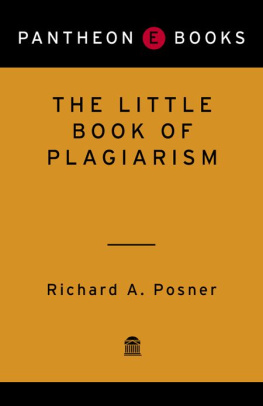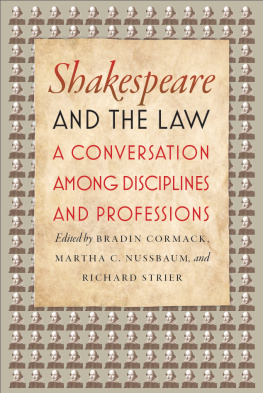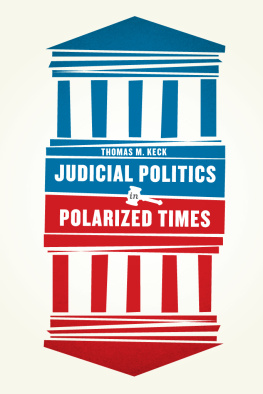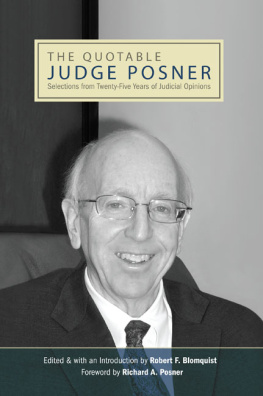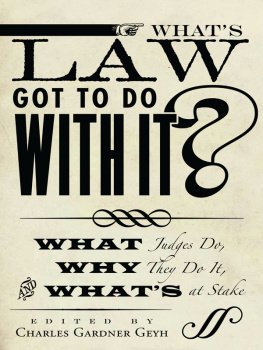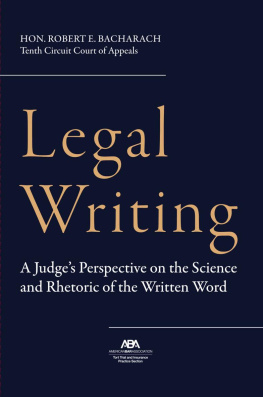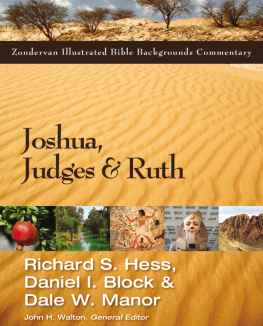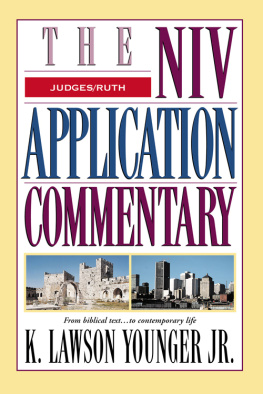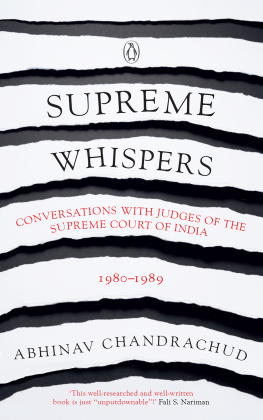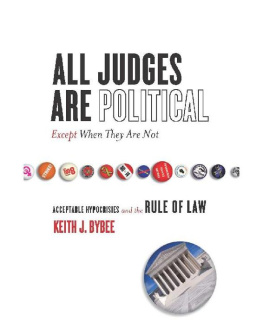How Judges Think
How Judges Think
Richard A. Posner
HARVARD UNIVERSITY PRESS
Cambridge, Massachusetts
London, England
Copyright 2008 by the President and Fellows of Harvard College
All rights reserved
Printed in the United States of America
First Harvard University Press paperback edition, 2010
A Caravan book. For more information, visit www.caravanbooks.org
Library of Congress Cataloging-in-Publication Data
Posner, Richard A.
How judges think / Richard A. Posner.
p. cm.
Includes index.
ISBN 978-0-674-02820-3 (cloth : alk. paper)
ISBN 978-0-674-04806-5 (pbk.)
1. Judicial process. 2. Judicial processUnited States. I. Title.
K2300.P67 2008
347.012dc22 2007037826
Contents
In my youthful, scornful way, I recognized four kinds of judgments; first the cogitative, of and by reflection and logomancy; second, aleatory, of and by the dice; third, intuitive, of and by feeling or hunching; and fourth, asinine, of and by an ass; and in that same youthful, scornful way I regarded the last three as only variants of each other, the
Ivan Karamazov said that if God does not exist everything is permitted, and traditional legal thinkers are likely to say that if legalism (legal formalism, orthodox legal reasoning, a government of laws not men, the rule of law as celebrated in the loftiest Law Day rhetoric, and so forth) does not exist everything is permitted to judgesso watch even clear what law is.
welcoming me to the club. This book parts the curtains a bit.
The difficulty outsiders have in understanding judicial behavior is due partly to the fact that judges deliberate in secret, though it would be more accurate to say that the fact that they do not deliberate (by which I mean deliberate collectively) very much is the real secret. on a single majority opinion in lieu of a separate opinion by each judge.
The confidentiality of the judicial process would not matter greatly to an understanding and evaluation of the legal system if the consequences of judicial behavior could be readily determined. If you can determine the ripeness of a cantaloupe by squeezing or smelling it, you dont have to worry about the produce clerks mental processes. But the consequences of judicial behavior are often more difficult to determine and evaluate than the consequences even of other professional services, such as medicine. Many of the decisions that constitute the output of a court system cannot be shown to be either good or bad, whether in terms of consequences or of other criteria, so it is natural to ask whether there are grounds for confidence in the design of the institution and in the competence and integrity of the judges who operate it.
The secrecy of judicial deliberations is an example of professional mystification. Professions such as law and medicine provide essential services that are difficult for outsiders to understand and evaluate. Professionals like it that way because it helps them maintain a privileged as practicing lawyers. Judges have convinced many peopleincluding themselvesthat they use esoteric materials and techniques to build selflessly an edifice of doctrines unmarred by willfulness, politics, or ignorance.
There is nevertheless considerable dissatisfaction with our legal system, though assessing their truth is not the project of this book and is especially daunting because it is even harder to estimate the benefits of our legal system than its costs. Legal rights are options that may have value even if never exercised, but how to value such options? And legal duties deter harmful conductbut how effectively is extremely difficult to determine too.
Supposing the criticisms have merit, the question is whom to blame. If all that judges do is apply rules made by legislatures or the framers of the Constitution (or follow precedents, made by current or former judges, that are promptly changed if they prove maladapted to current conditions), then the responsibility for the mess (if it is a mess) must lie with the legislators or the Constitutions framers, or with the political process more generally. But suppose that most rules laid down by legislative bodies are all right and the problem is willful judgesjudges who make up their own rules, or perhaps ignore rules altogether, instead dispensing shortsighted justice on the basis of the equities of each case, and as a result create enormous legal uncertainty. The policy implications and hence the path of reform would depend on which explanation was correct (both might be). And what if the basic problem is that the structure of American government, and the American political culture more broadly, compel judges to make rather than just apply rules of law? What looks to the critics of the judiciary like willfulness might actually be the good-faith performance of a vital judicial role, and if judges refused to play it, insisting instead, as some legal thinkers urge (the legalists, of whom more shortly), on limiting themselves to passively applying rules made elsewhere, the legal system might be worse than it is.
The answers are bound up with issues of judicial behavior. To illustrate, everyone will agree that contracts are vital to the operation of markets, and almost everyone will agree that and common law is of course made by judges, not legislators.
The judicial mentality would be of little interest if judges did nothing more than apply clear rules of law created by legislators, administrative agencies, the framers of constitutions, and other extrajudicial sources (including commercial custom) to facts that judges and juries determined without bias or preconceptions. even intermediate ones, they are occasional legislators. To understand their legislative activity, one must understand their motivations, capacities, mode of selection, professional norms, and psychology.
Achieving a sound understanding of judicial behavior is thus of more than merely academic interest; it is a key to legal reform. Yet its academic interest is also considerable because of the topic in economics, organization theory, and other fields.
Like other writing by judges about judging, this book is heavily influenced by my own judicial experience, consisting of more than a quarter century as a federal court of appeals judge (seven years as chief judge of my court), with occasional forays into the district court to preside at trials, mainly civil jury trials. But the mode of Judges, like other refined people in our society, are reticent about talking about sex, but judges are also reticent about talking about judging, especially talking frankly about it, whether to their colleagues or to a larger professional audience. This reticence makes the scholarly study of judicial behavior at once challenging and indispensable.
The book emphasizes positive rather than normative analysiswhat judges do, not what they should dobut I do discuss normative issues and propose a few modest reforms, as well as making occasional suggestions for further research. Positive and normative analysis cannot easily be separated when one is dealing with peoples deliberate actions, for unless they are evil or cynical people, the best explanation for their actions is unlikely to be that they are deliberately flouting the norms of their society. If it is deeply wrong for a judge to base a decision on the flip of a coin, an aleatory theory of judicial behavior is unlikely to be sound. The grounds of a judges decisions may be wrong, but they are unlikely to be outside the ballpark of norms and values prevailing in the society.
The books primary focus is on federal appellate judges, including Supreme Court Justices (the subject of Part Three, though discussed in the other parts as well). But there is some discussion of trial judges, state court judges, judges in foreign nations similar to the United States, and arbitrators (private judges).


